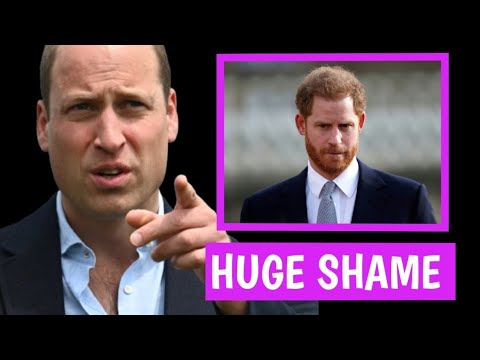In a world where loyalty and betrayal are often tested in the glare of public scrutiny, the saga of Prince William and Prince Harry has captivated audiences globally. Once the epitome of brotherly love, their relationship has morphed into a complex web of resentment, misunderstanding, and a desperate plea for reconciliation.
The latest twist? Prince Harry’s bold demand for an apology from Prince William before he considers returning to royal duties. This audacious request has reignited debates about loyalty, forgiveness, and the very nature of family ties within the royal family. Can the rift between the brothers ever be mended, or are they fated to remain estranged in a battle of wills?

To fully understand the current state of affairs, we need to trace back to the pivotal moments that led to the brothers’ estrangement. The royal family has always been under the microscope, but the scrutiny intensified following Prince Harry’s marriage to Meghan Markle in 2018. The couple faced a barrage of negative press, often depicted as outsiders disrupting the traditional royal narrative.
The relentless media attention took a significant toll on their mental health, prompting them to step back from royal duties in early 2020. This decision shocked the royal family and the public alike. For many, it felt like a betrayal of the family’s long-standing traditions and values.
Prince William, who has always prioritized duty and responsibility, reportedly felt blindsided by Harry’s sudden departure from royal life. This divergence in values set the stage for a growing rift, complicating their once-close bond. Fast forward to today, and Prince Harry has expressed a willingness to return to royal engagements, but with a caveat—he wants an apology from Prince William. This demand has sent shockwaves through both royal circles and the public. Harry’s assertion implies a deep-seated belief that he has been wronged, challenging the very concept of forgiveness in familial relationships.
The statement not only raises eyebrows but also invites questions about the nature of loyalty within the royal family. Are Harry’s feelings of betrayal justified, or do they reflect a misunderstanding of the expectations that come with being a member of the royal family? The complexities of their relationship are further exacerbated by the public nature of their disputes, where every word and action is scrutinized.
To comprehend the implications of Harry’s demand for an apology, we must explore the concept of betrayal within a familial context. In many cultures, betrayal carries a heavy stigma; it suggests a violation of trust that can fracture relationships irreparably. For William, the notion that he should apologize to someone who has chosen to step away from royal duties could feel like an affront to the values he upholds. William’s reported sentiment that “one can’t ask for forgiveness from traitors” underscores the deep emotional and philosophical divide between the brothers.
This perspective raises critical questions: What constitutes a traitor in a family context? Is it merely a matter of differing priorities, or is there a deeper betrayal at play? These questions are at the heart of the ongoing conflict, illuminating the emotional complexities that come with being part of a royal family.
The public’s reaction to this unfolding drama has been nothing short of polarized. Some sympathize with Harry, viewing his request for an apology as a valid plea for recognition of his struggles. They argue that mental health and emotional well-being should take precedence over tradition, advocating for a more compassionate approach to familial disputes. On the other hand, many stand firmly with William, perceiving Harry’s actions as a betrayal of royal duties and responsibilities. This dichotomy of opinions reflects broader societal debates about loyalty, family expectations, and personal autonomy.
The media has played a crucial role in shaping these narratives, often sensationalizing the brothers’ conflicts and framing their relationship as a soap opera. The implications of this rift extend beyond personal grievances—they pose significant challenges for the monarchy itself. As the future king, Prince William represents continuity and tradition, while Harry’s choices reflect a desire for change and autonomy. This clash of values could undermine the royal family’s ability to connect with a modern audience.
Moreover, a fractured relationship between the future king and a prominent member of the royal family raises questions about the monarchy’s stability. If the brothers cannot reconcile, it may signal a broader crisis within the royal institution, one that could challenge its relevance in contemporary society.

